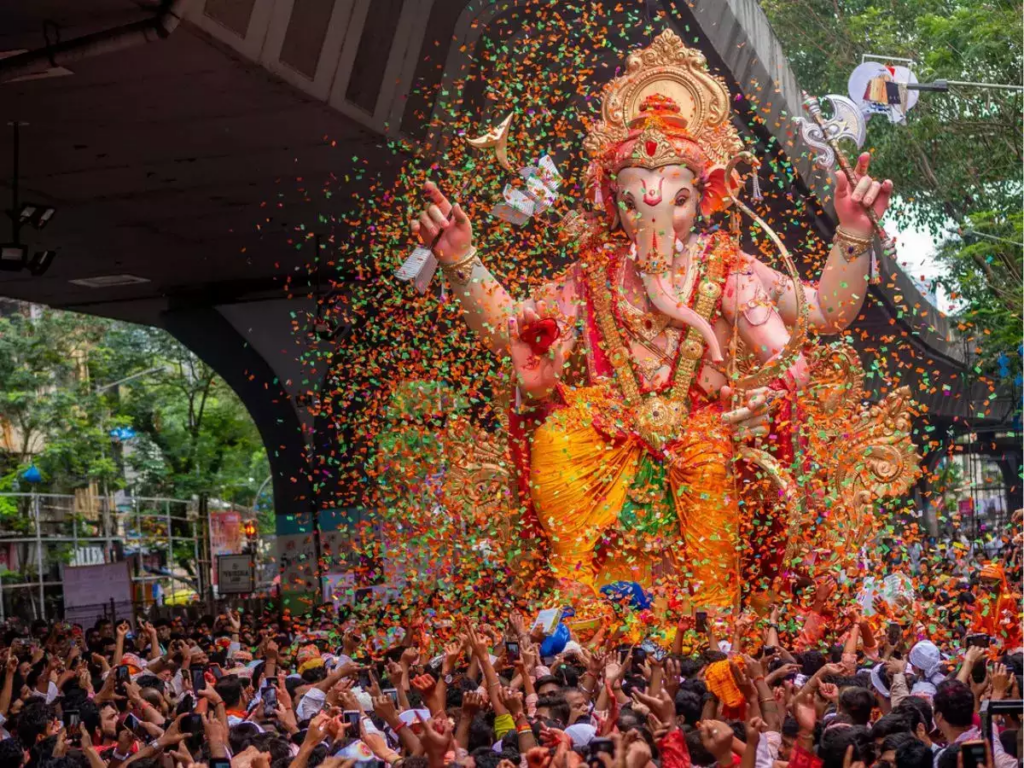Definition of Ganesha
Hindus widely worship Ganesha, a deity known as the god of wisdom, knowledge, and new beginnings. People recognize him by his elephant head, potbelly, and four arms, and they venerate him in India, Sri Lanka, Nepal, Thailand, and Bali. Ganesha has many names, such as Vinayaka, Vighnaharta, and Pillaiyar. His significance as the remover of obstacles and the god of success contributes to his popularity among Hindus and the diaspora.

Origins and History
According to Hindu mythology, Ganesha was created by the goddess Parvati, the consort of Lord Shiva. One day, Parvati asked her son, Ganesha, to guard the entrance of her chamber while she took a bath. When Lord Shiva returned, he refused to let him in, not recognizing him as his father. Enraged, Lord Shiva cut off Ganesha’s head. Upon realizing his mistake, Lord Shiva restored Ganesha’s life by replacing his head with that of an elephant.

Popularity
The Gupta dynasty adopted Ganesha, which led to his increased popularity in the 6th century CE.He became a prominent deity in Hinduism during the medieval period, and his worship spread to Southeast Asia. During the annual festival of Ganesh Chaturthi, people make statues of him, and display them in homes and temples to celebrate the deity. The festival culminates with the immersion of the statues in a nearby body of water, symbolizing Ganesha’s return to his divine abode.
Ganesha Today
Today, Hindus worldwide revere Ganesha and often invoke him at the start of new endeavors or before important events. He eliminates barriers, facilitates success, and offers wisdom to his followers, and people recognize him worldwide.

You can help us by buying our Indian products in our shop on the following link.